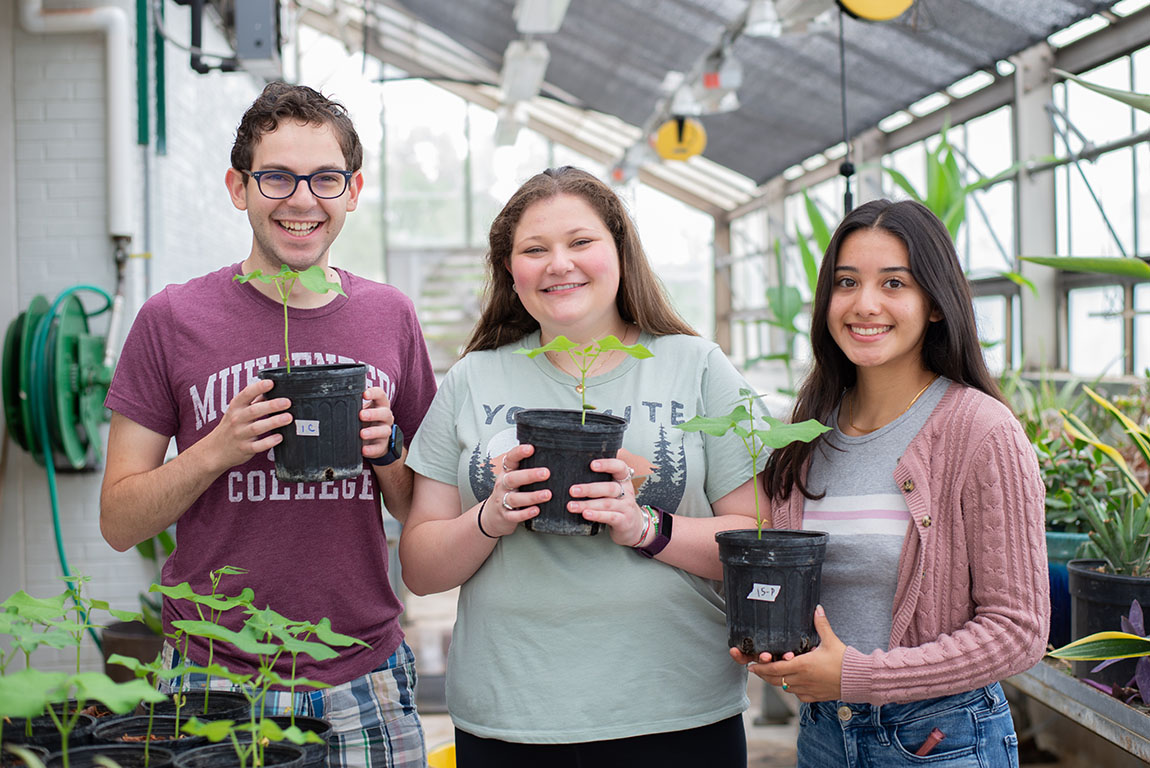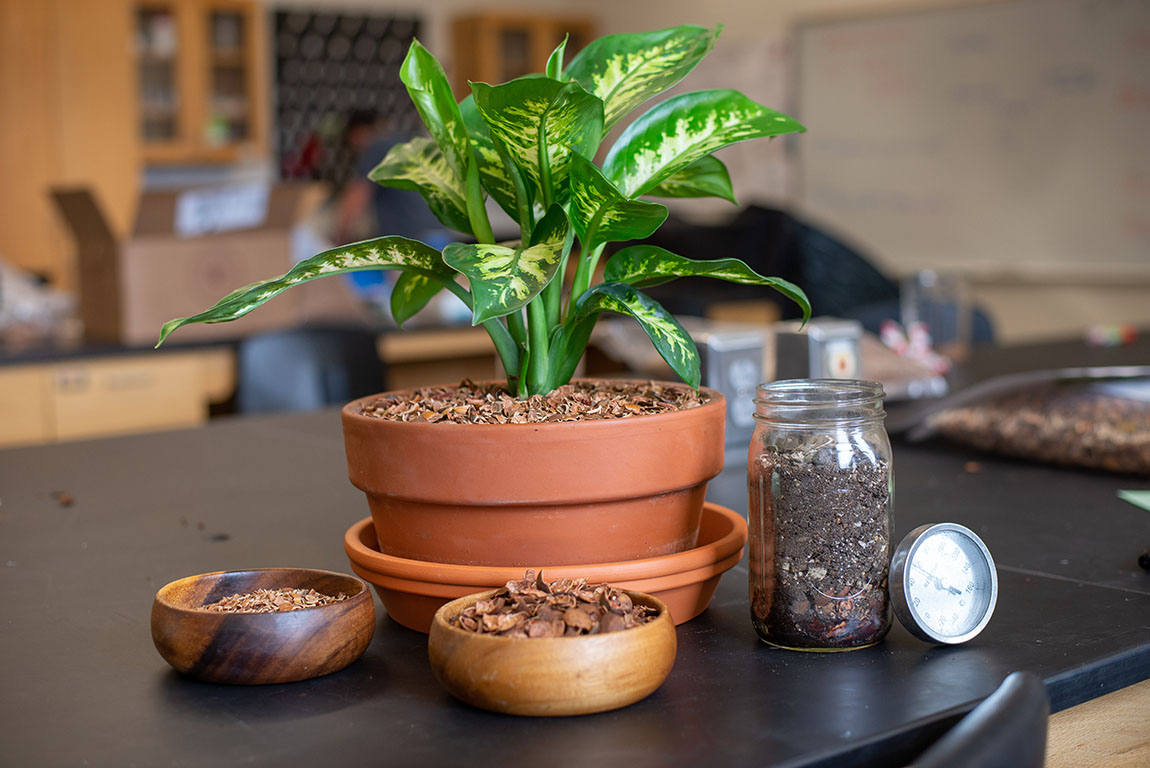Students Develop a Sustainable Business Concept in Grant-Funded Summer Program
This year’s group’s idea was to use shell waste from pecan and hazelnut manufacturers to create a soil dressing for potted plants.By: Meghan Kita Tuesday, August 16, 2022 09:49 AM
 Eli Coopersmith ’23, Gabrielle Stein ’25 and Jacklyn Hernandez ’23. Photos by Lizard Foley ’24
Eli Coopersmith ’23, Gabrielle Stein ’25 and Jacklyn Hernandez ’23. Photos by Lizard Foley ’24On a recent Friday, Eli Coopersmith ’23 and Jacklyn Hernandez ’23 stood outside a gardening store to speak with customers about their business concept, Nuts About Plants. The concept, developed with Gabrielle Stein ’25, is for a company that uses shell waste from pecan and hazelnut manufacturers to create a soil dressing for potted plants that retains moisture, promotes growth and is nice to look at.
“We got very positive feedback,” says Coopersmith, a computer science major and innovation & entrepreneurship minor. “We actually got about five customers to put their name on a list [to receive updates]. They wanted to buy it right away.”

He and Hernandez went to the store to learn about the potential audience for Nuts About Plants, a concept they were developing as part of The Seedbox, a six-week summer program funded in part by a three-year, $30,000 VentureWell grant. The grant is focused on integrating innovation & entrepreneurship and sustainability studies to support students in their development of real-world business solutions to environmental and social problems. With support from the Lemelson Foundation, VentureWell awarded the grant last year to Director of Innovation & Entrepreneurship Rita Chesterton and Professor of Biology, Director of Sustainability Studies and Rita and Joseph B. Scheller Chair Rich Niesenbaum.
Chesterton and Niesenbaum co-taught a new course this spring, The Future of Food, which they developed with help from the grant. In it, student teams identified a food-systems-related sustainability issue and came up with a business concept that might address it.
Stein’s group in the class developed the concept the Seedbox trio began working on this summer, though the original idea was to use shell waste as outdoor mulch. Quickly, the Seedbox group realized such an idea wasn’t feasible—it would be impossible to produce enough product at a competitive price using shell waste.
“In class, it was hard to figure out everything in such a short period of time,” says Stein, a studio art major. “This Seedbox program was from 9 to 5 every day, like a normal job. We were basically doing research all day on our project. It was a lot of intense, hands-on experience with market research and figuring out what our project should be.”
The soil dressing concept was more feasible and had some demonstrated customer interest, though the group still has some tasks to work out, Stein says. For example, they’re considering which packaging would be cost-effective, sustainable and sturdy enough to hold the shells. Even though there’s more work to be done, the experience allowed the students to see what innovation and entrepreneurship looks like in practice.
“There’s no road map for any of this,” Coopersmith says. “In class, when you’re doing entrepreneurship, it’s like, ‘This week, you’re going to this part. Next week, you’re going to do this part.’ It’s presented more linearly. [When you develop a product], it’s absolutely not linear at all. If you try something and it doesn’t work, you learn something.”
